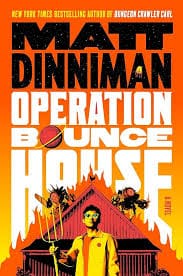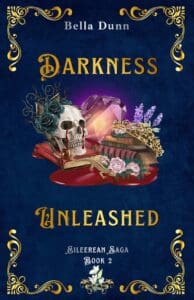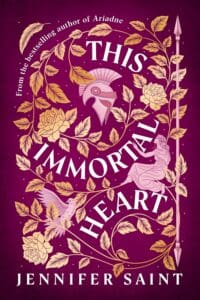
Synopsis
A legend. A lie. A love story.
A lady-knight whose legend built a nation meets a retiring historian in awe of her fame. He’s sent back through time to make sure she plays her part . . . even if it breaks his heart.
Sir Una Everlasting was Dominion’s greatest hero: the orphaned girl who became a knight, who died for queen and country. Her legend lives on in songs and stories, in children’s books and recruiting posters – but her life as it truly happened has been forgotten. Centuries later, Owen Mallory – failed soldier, struggling scholar – falls in love with the tale of Una Everlasting. Her story takes him to war, to the archives, and then into the past itself. Una and Owen are tangled together in time, bound to retell the same story over and over again, no matter what it costs. But that story always ends the same way.
If they want to rewrite Una’s legend, and finally tell a different story, they’ll have to rewrite history itself – and change their lives in the process.
Review
This was 320 pages?! This felt like it was everlasting. In a good way.
Give me a weary, hard-weathered lady knight and a bumbling, anxious war hero historian any day.
This is for my Doctor Who River Song fans.
“I am not sure which I prefer: To be taken for something I am not, or to fail at being what I am.”
Una Everlasting, hero and saint, arced through history like a bright-tailed comet. She became a legend.
Owen is a historian in awe of this legend, so when he finds himself back in time to guide and chronicle Una’s last adventure, the one he knows will kill her, he knows he must keep the legend separate from the person.
First of all, beautiful writing. Told in the second person, written to ‘you’: to Una from Owen, from Una to Owen, you can feel the intimate connection and anguish of both.
Especially when the event reoccurs again and again, and they feel themselves falling apart.
But if I touched you, and found only flesh—if I tasted you, and found only the ordinary bittersweetness of a wet c*nt—then you would no longer be a legend to me, but only yourself. I could kill a legend; I didn’t know if I could kill you.
With a premise such as this, I was worried it would get repetitive, and it did. But Harrow always adds another layer, another outlook, nuance, detail that makes you trust the process.
This is an exploration of perception and stories. About twisting narratives for power. How we can place our value on something real, but extremely untrue.
The word home evoked only the sweet green smell of the woods, long gone, and sometimes another word: Yew, I thought, or perhaps you.
Don’t go into this expecting any hard rules. There is time travel, but this isn’t science fiction. This is fantasy, but there is no true magic world-building.
This was beautiful and deliberate, and it will linger.







Leave a Reply